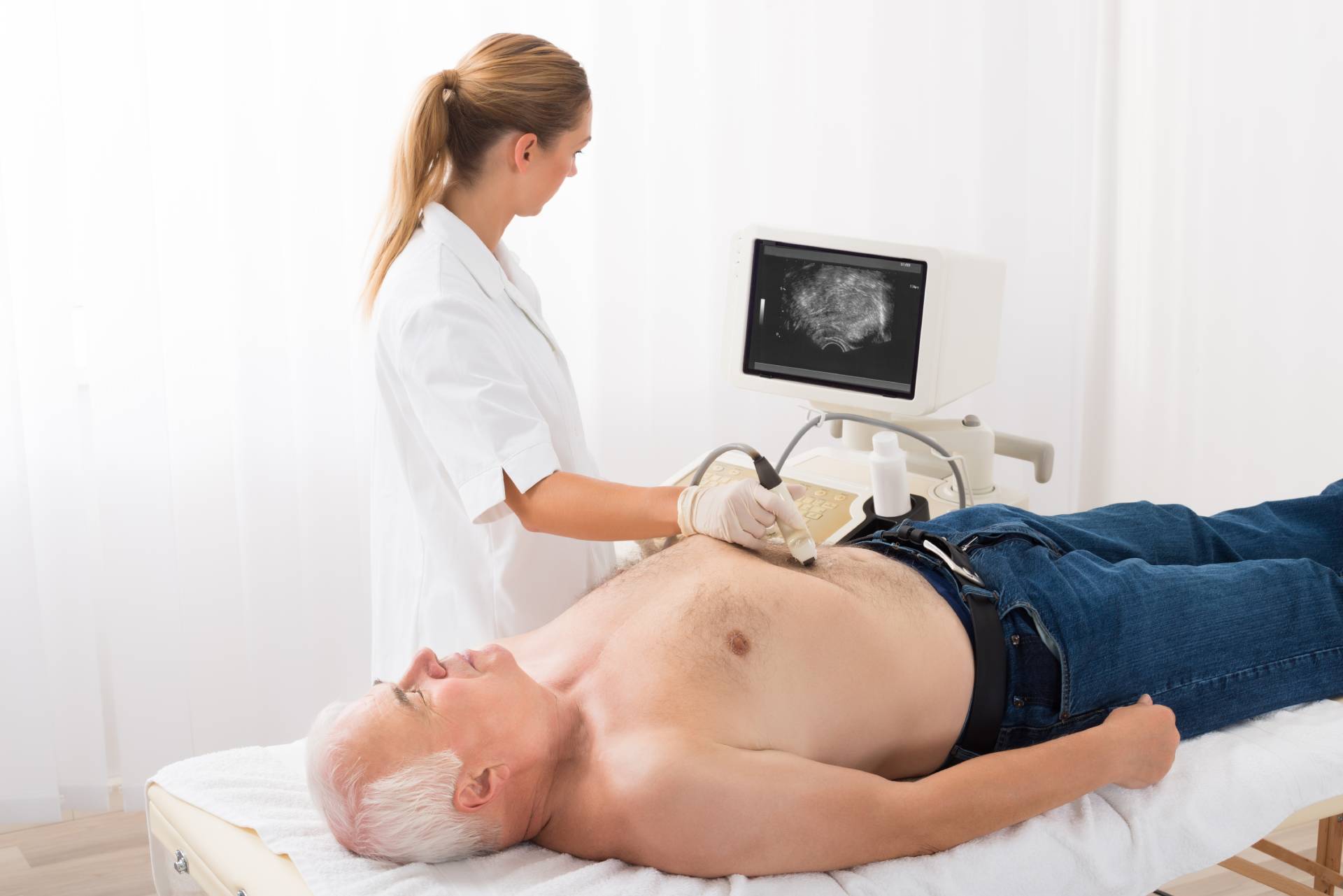Endoscopic Ultrasound (EUS) in Connecticut
What is an endoscopic ultrasound (EUS)?
An endoscopic ultrasound (EUS) utilizes a long, flexible tube or “scope” that is advanced through the mouth and into the small intestine or rectum. The GI provider can then assess the lining of the esophagus, stomach, the beginning of the small intestine, or the rectum. The EUS scope also has an ultrasound probe to examine the GI tract with ultrasound waves. This allows the gastroenterologist to examine various layers of the intestinal wall and other organs in the body. GI providers often recommend this gastrointestinal procedure to analyze abnormalities or diagnose GI symptoms or conditions occurring in the intestine, chest, pancreas, and biliary system. An EUS can also be used to help determine the stage of cancer. Contact a Connecticut GI location in your community if you have been experiencing GI symptoms. Our gastroenterologists can assess you to determine if an endoscopic ultrasound can help diagnose your condition.

Why would I need an EUS?
Your GI specialist may recommend an endoscopic ultrasound for a number of reasons. Some of the most common reasons why a EUS would be recommended include:
- Assess the muscles of the anal canal and lower rectum to diagnose the cause of fecal incontinence
- Examine abnormalities or tumors in organs such as the liver and gallbladder
- Analyze conditions of the pancreas
- Examine bile duct stones
- Aid in determining the stages of cancer
- Analyze nodules found in the intestinal wall
- Examine the esophagus for Barrett’s esophagus
- Analyze sarcoidosis
What should I expect the day before my endoscopic ultrasound?
Our team will provide you with instructions on how to prepare for your endoscopic ultrasound. In most cases, patients will be able to continue their regular diet the day before the exam. However, patients will likely be instructed to consume anything by mouth after midnight, except for medications. The preparation instructions provided by your gastroenterologist must be closely followed. Patients may be given additional instructions for their medications; generally, patients can take their medications as usual. However, patients on blood thinners (i.e., Plavix®, aspirin, , warfarin, anti-inflammatories) and diabetic patients may be given special instructions.
What happens on the day of my endoscopic ultrasound?
You will be asked to arrive at the endoscopy center 1 to 1.5 hours before your exam to allow time to complete the necessary paperwork and prepare for the exam. Once you have changed into your medical gown, an IV catheter will be placed into your arm to administer sedation. Our team will hook you up to medical equipment so your GI provider and staff can monitor your blood pressure, heart rate, breathing, pulse, electrocardiogram, and oxygen level during and following the exam.
Once you have been brought back to the exam room, our team will ask that you lay on your left side on the exam table. Then, IV sedation will be administered. Initially, small amounts are given at a time to ensure that you do not have any negative reactions to the sedation and that the proper amount is administered to you. Once you have been properly sedated, the endoscope will be inserted through your mouth. It will then be gently moved through the esophagus, stomach, and first part of the small intestine. Air will be injected through the scope to help your gastroenterologist see. If there is any fluid in the upper GI tract, it will be suctioned out through the scope. Depending on what is found during your exam, a variety of things can be performed during the EUS, including removing polyps, biopsies, and controlling bleeding. Once the procedure is concluded, your GI provider will suction out as much of the remaining air and fluid as possible. Generally speaking, this exam can take about 30 – 60 minutes.
Once the exam has been completed, you will be moved into the recovery room to be observed while the sedation wears off. Your sedation dose will determine how quickly you wake up after the procedure. Patients usually wake up and can be discharged within 45 – 60 minutes. You will need to arrange for a ride home because you will not be permitted to operate a motor vehicle for the remainder of the day. You should not sign any important documents, perform strenuous activities, or work for the rest of the day. Most patients can resume eating and drinking regularly after the exam. Before you are discharged, you will receive instructions about eating, activity, and medication.
Your GI provider and/or nurse will review the results of the exam with you once you are awake. In most cases, patients do not remember what they are told due to the effects of the sedation. If possible, our team recommends bringing a trusted adult with you to listen to the exam results. A typed report will also be given to you. If a biopsy is done, results are typically available in one week.
What are the risks of an endoscopic ultrasound?
A EUS is widely considered to be a very safe procedure. Generally speaking, EUS complications occur in less than 1% of patients. Though most complications are not life-threatening, the complication may necessitate hospitalization and/or surgery. Our team will review a consent form with you before the procedure begins. If you have any questions or concerns, please do not hesitate to discuss them with your GI provider before your endoscopic ultrasound.
Reactions connected with the sedation medication can occur. Possible reactions can include allergic reactions, effects on the heart and blood pressure, difficulty breathing, and irritation of the vein where the IV was placed.
Biopsies and fine needle aspiration can cause bleeding. Though uncommon, significant bleeding may require hospitalization or a blood transfusion.
Another uncommon complication is a puncture or perforation in the rectum, small intestine, stomach, and esophagus can also occur. If this complication does occur, it could be found during the exam or not until later in the day. A puncture or perforation will typically need surgery and a hospital stay.
You should contact your GI provider’s office without delay if concerning symptoms develop after the EUS, like bleeding, fever, or worsening abdominal pain.
Like most procedures, an endoscopic ultrasound is not a flawless procedure. There is always a small, accepted risk that abnormalities, like cancer, could be missed during the procedure. That is why it is essential that you continue to attend any follow-up appointments with your GI provider and inform them of any new or recurring symptoms.
What are alternatives to an endoscopic ultrasound (EUS)?
In most instances, any alternatives to an endoscopic ultrasound will depend on why a EUS is being performed in the first place. A EUS is typically used to diagnose and treat irregularities found in the gastrointestinal tract. Some alternatives to an EUS are different forms of x-rays like an MRI, CT scan, or transabdominal ultrasound. However, it is important to note that these alternatives are only diagnostic exams.

